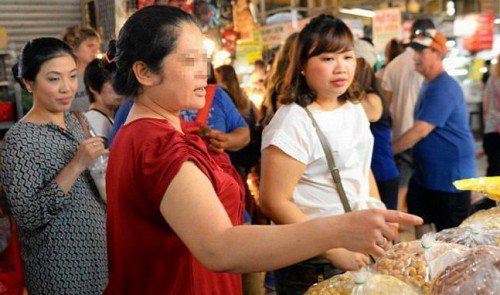Tens of thousands of enterprise-sized small businesses in Vietnam remain reluctant to upgrade their business status for fear of being caught up in red tape and subject to unfavorable tax conditions.
Most of these so-called ‘household businesses’ currently pay less than a few million VND per month in poll taxes, despite earning significant revenues. [VND1 million = US$44]
Ha, one trader at a wholesale market in Ho Chi Minh City, has recently filed for dissolution of her small enterprise after encountering multiple difficulties since changing from being a household business just a few years ago.
She said her enterprise had been subject to countless inspections since its establishment, and each time accounting errors had been found, resulting in her having to pay tens of millions of VND in tax arrears.
“It’s not that we are disregarding the law on purpose, but we simply can’t update quickly enough because of the constantly changing tax regulations,” Ha said. “Our business involves many different items, making it hard to validate all the correct papers.”
According to Ha, she now pays a fixed poll tax of just over VND5 million ($223) per month under the household business model, compared to the much higher cost of employing an accountant and facing the risk of tax arrears as an formal firm.
In addition to tax accounting, bureaucratic red tape is another factor discouraging many household businesses from becoming enterprises in Vietnam.
In order for any enterprise registration to be processed, household businesses must cease all business activity until the status change is complete, which can take up to several weeks and entail huge losses on most businesses.
All previous papers and qualifications issued by district-level administrations must also be re-issued by the municipal or provincial administration, and trading names might also have to change to avoid duplication.
There are currently around 275,000 registered household businesses in Ho Chi Minh City, comprising two percent of the city’s total tax revenue.
According to experts, this number is not in keeping with the total size of these household businesses however, yet to determine their exact revenue is almost impossible, given that there is no requirement to keep transaction invoices.
An estimated 14,000 of these household businesses currently qualify to become enterprises, with the People’s Committee of Ho Chi Minh City looking to transform between 20,000 and 25,000 by the end of 2017.
In reality however, only 120 have applied to become enterprises since June 2016, according to statistics from the municipal Department of Planning and Investment.
“There needs to be a certain amount of pressure from authorities, otherwise these household businesses won’t make the move of their own volition any time soon,” said tax expert Nguyen Thai Son.
Son added that some businesses are currently ‘lobbying’ with district officials to pay less tax, explaining their reluctance to become enterprises as it means having to pay more.

























































